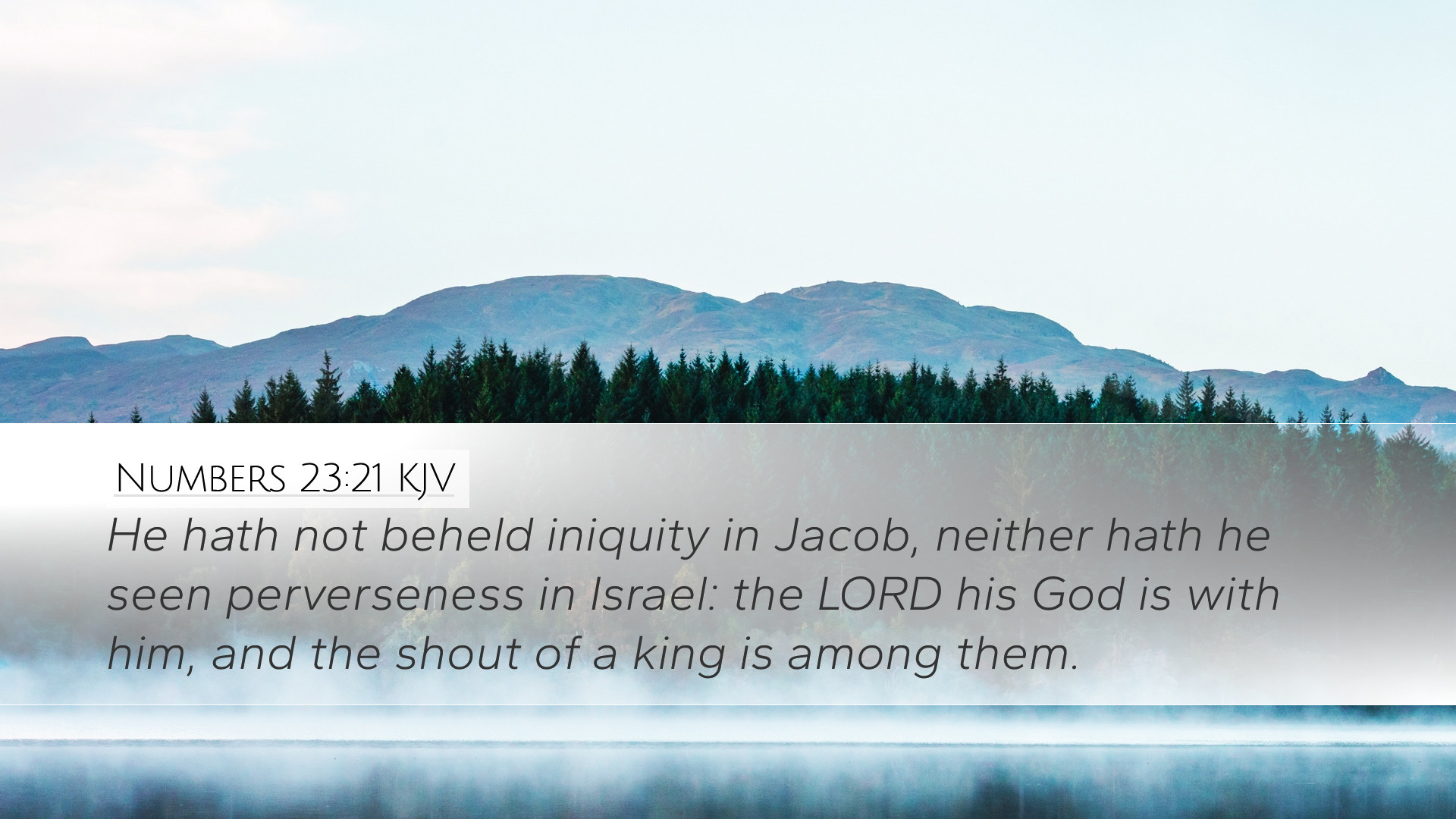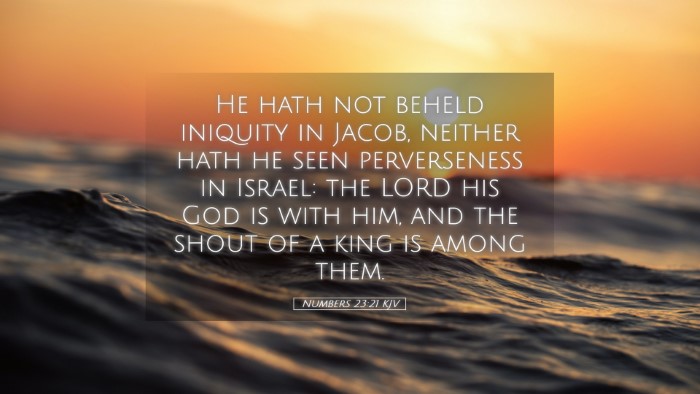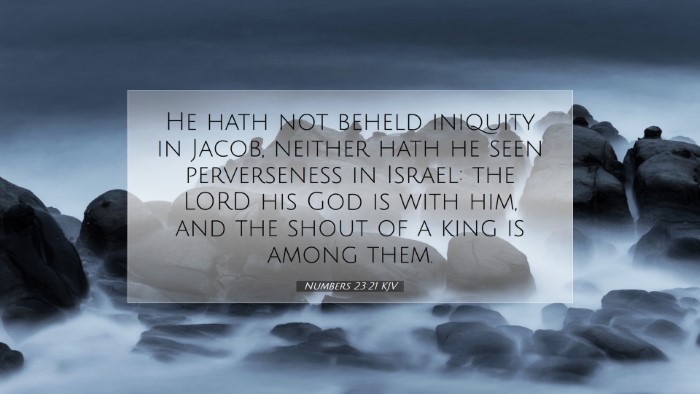Commentary on Numbers 23:21
Bible Verse: "He hath not beheld iniquity in Jacob, neither hath he seen perverseness in Israel: the LORD his God is with him, and the shout of a king is among them." (Numbers 23:21)
Introduction
Numbers 23:21 presents a profound statement on God's view of Israel during a pivotal moment in their wilderness journey. This verse emerges from the account of Balaam, a prophet hired by Balak, the king of Moab, to curse the Israelites. Instead, he receives a divine revelation that underscores God's unwavering commitment to His people. The commentaries provide insights into the theological implications of this verse, emphasizing themes of divine favor, the nature of sin in the believer's life, and God's presence among His chosen.
Theological Insights
1. God's Non-Recognition of Iniquity
Matthew Henry emphasizes that God's declaration of not beholding iniquity in Jacob reflects the grace bestowed upon the children of Israel. Despite their failings, God chooses to overlook their transgressions due to His covenant relationship with them.
Albert Barnes furthers this thought by noting that this statement should not imply that there is no sin within Israel; rather, it highlights God's redemptive perspective. In Christ, believers are seen as righteous, illustrating the doctrine of imputed righteousness that extends to those under the new covenant.
2. The Assurance of God's Presence
Adam Clarke remarks on the phrase, "the LORD his God is with him," emphasizing the significance of divine companionship. This assurance is vital for believers today, providing comfort that God remains present despite circumstances. Clarke elucidates that the King's presence brings strength and assurance, paralleling how Christ's presence empowers the church.
3. The Shout of a King
The latter part of the verse, "the shout of a king is among them," conveys the sovereignty of God over Israel. Matthew Henry interprets this as illustrating Israel's unique status as God's chosen nation, who can rejoice in their Defender. The 'shout' signifies victory and authority, reminding believers of the triumph experienced through Christ's reign.
Practical Applications
This verse has profound implications for personal faith and corporate worship:
- Understanding Grace: Believers can find solace in the idea that their sins are not at the forefront of God's view - it is His grace that prevails, allowing for intimate fellowship.
- Awareness of God's Presence: Regular acknowledgment of God's presence in one's life serves to strengthen faith and embolden actions in service to His kingdom.
- Celebrating God's Sovereignty: Recognizing the "shout of a king" can lead to greater joy and security, inviting congregations to worship with an understanding of their identity in Christ.
Comparative Analysis
The perspectives provided by various scholars offer a rich tapestry of understanding:
- Henry's Emphasis on Grace: His insights underline the importance of divine grace in the believer's life.
- Barnes' Contemporary Application: He adeptly connects the historical context with New Testament theology, ensuring relevance for modern-day believers.
- Clarke’s Focus on Presence: Clarke's views are instrumental in reminding believers of the constant companionship of God, affecting their faith journey significantly.
Conclusion
Numbers 23:21 serves as a powerful assurance to the people of God, both ancient and modern. It highlights God's grace while simultaneously reassuring believers of His steadfast presence. The insights from credible commentaries enrich our understanding and challenge us to live in light of these truths. For pastors, students, theologians, and scholars, this verse is a clarion call to embrace the identity and security found in God alone.


